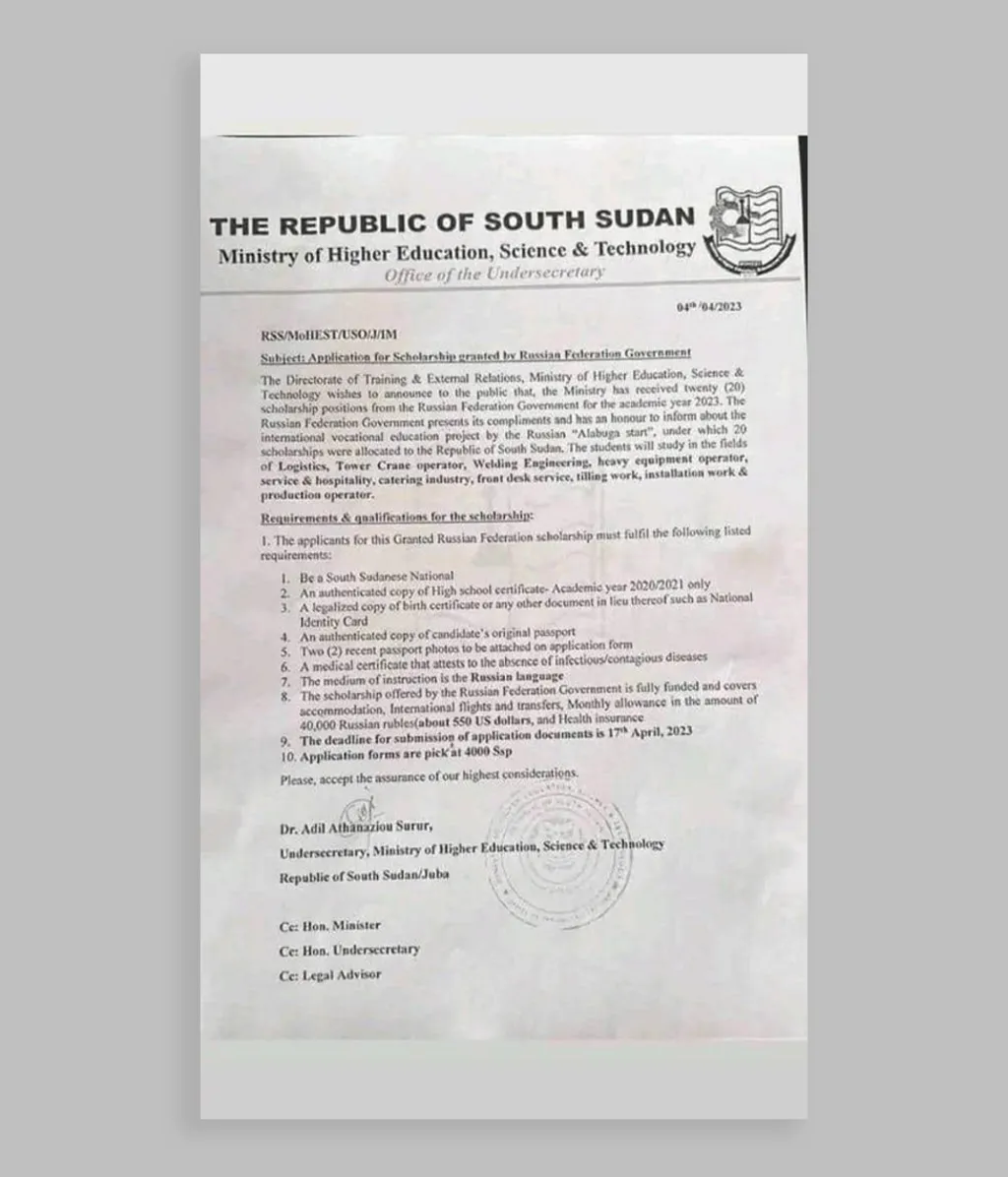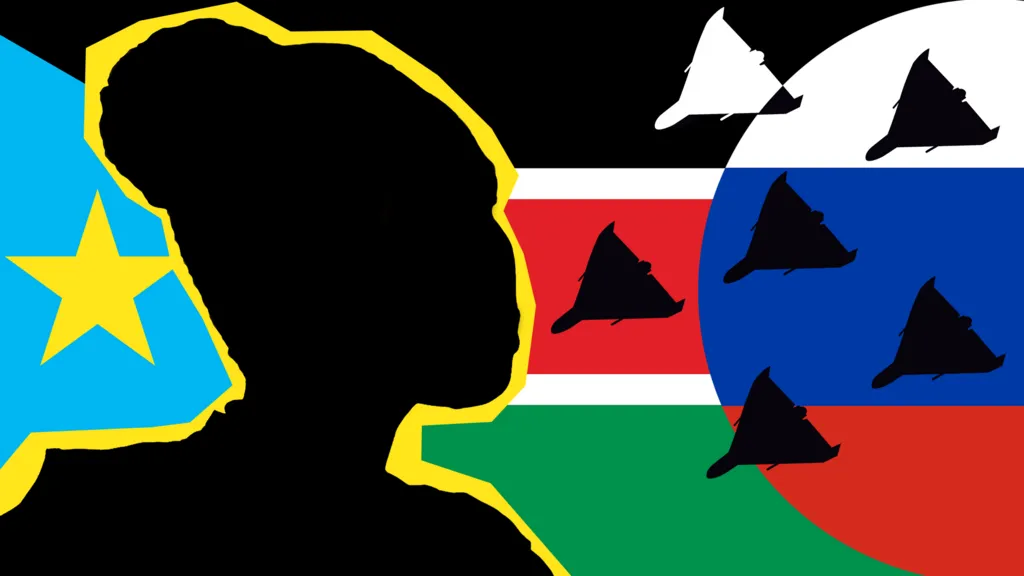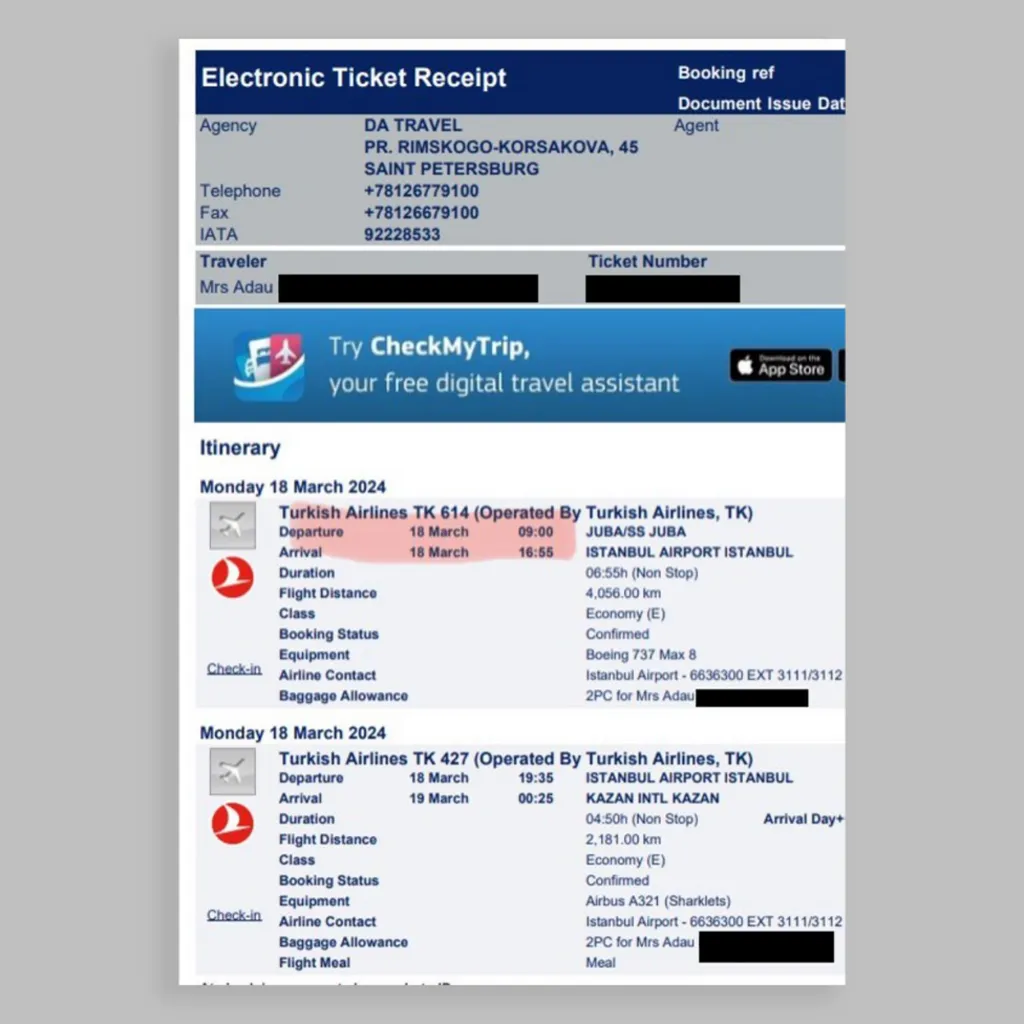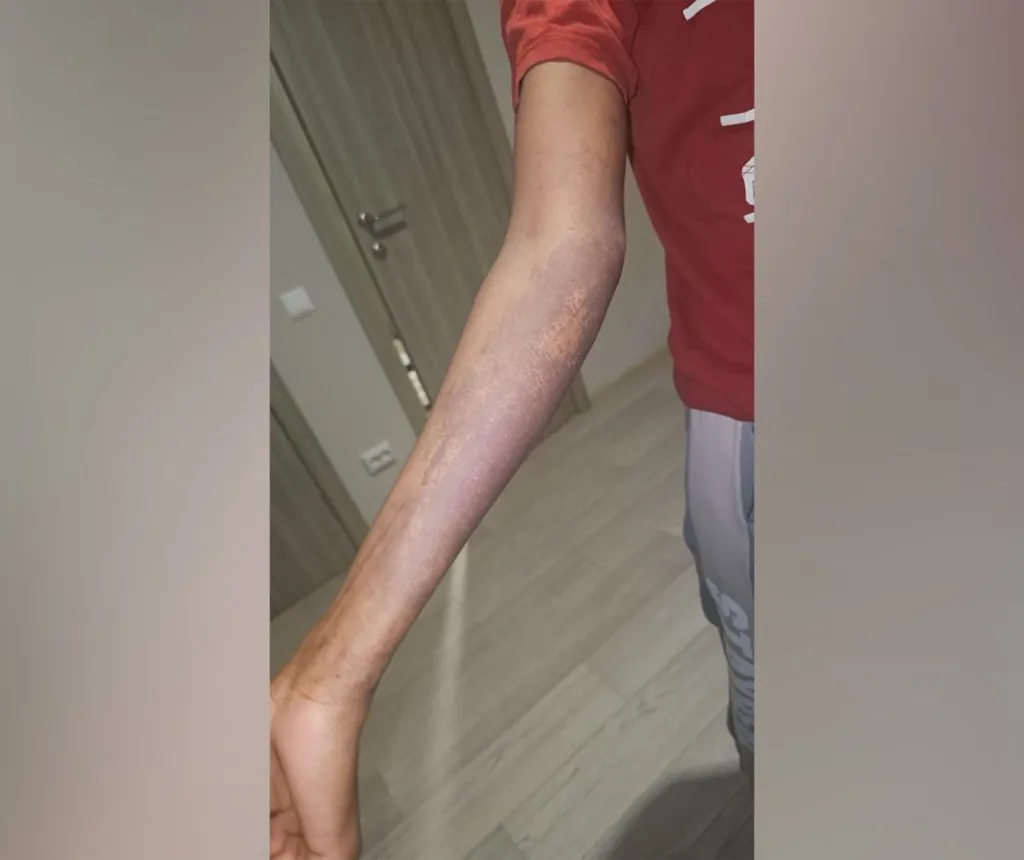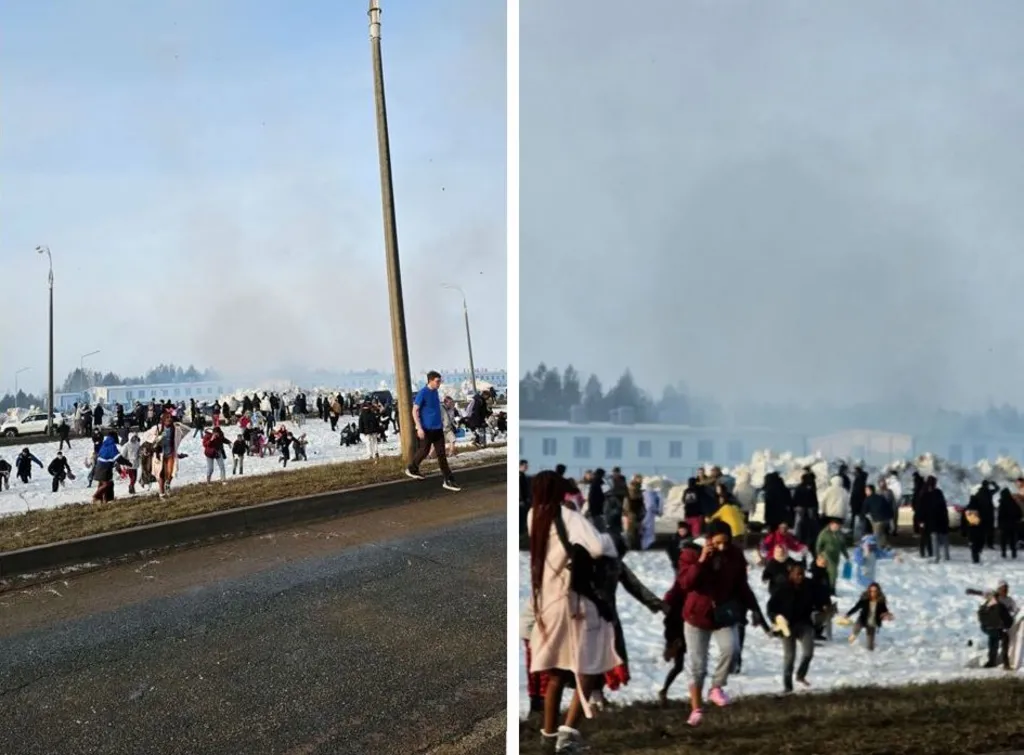On her first day of work, Adau realised she had made a big mistake.
“We got our uniforms, not even knowing exactly what we were going to do. From the first day of work we were taken to the drones factory. We stepped in and we saw drones everywhere and people working. Then they took us to our different workstations.”
Twenty-three-years-old and originally from South Sudan, Adau says last year she was lured to the Alabuga Special Economic Zone in the Republic of Tatarstan in Russia, on the promise of a full-time job.
She had applied to the Alabuga Start programme, a recruitment scheme targeting 18-to-22-year-old women, mostly from Africa but also increasingly from Latin America and South-East Asia. It promises participants professional training in areas including logistics, catering and hospitality.
But the programme has been accused of using deception in its recruitment practices, and of making its young recruits work in dangerous conditions for less pay than advertised. It denies all these allegations but did not deny that some employees were helping to build drones.
The Alabuga Start programme (AS) recently made global headlines when South African influencers advertising the programme were accused of promoting human trafficking. The BBC reached out to the implicated influencers and the promoter responsible for connecting them to the programme but none responded to our requests.
By some estimates more than 1,000 women have been recruited from across Africa to work in Alabuga’s weapons factories. In August the South African government launched an investigation and warned its citizens not to sign up.
Adau has asked the BBC not to use her surname or picture as she does not want to be associated with the programme. She says she first heard about it in 2023.
“My friend posted about a scholarship in Russia on their Facebook status. The advert was by the South Sudanese Ministry of Higher Education,” she says.
